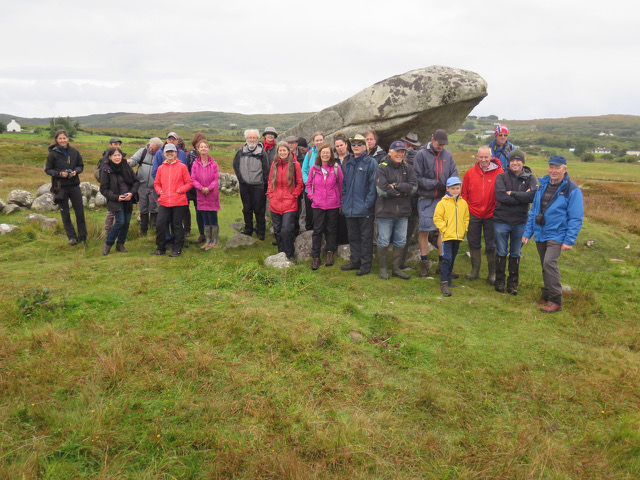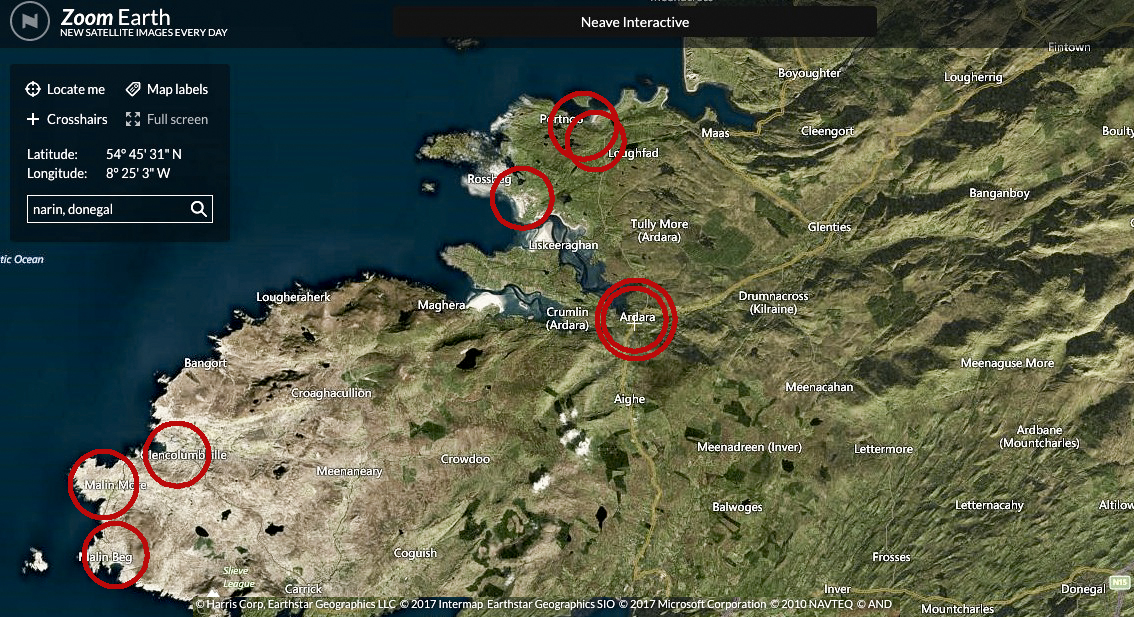IQUA’s 2013 North Mayo Field Meeting took place from September 20-22. We last visited this fascinating area in 1991, but since then several field seasons of detailed excavations, surveys and environmental work have greatly deepened our understanding of this beautiful stretch of coastline, in particular regarding the Mesolithic and Neolithic inhabitants of the area and the environmental context of their settlements.
IQUA was fortunate to have leaders with the expertise of Graeme Warren, Steve Davis, Seamus Caulfield, Steve McCarron and Mike Philcox for the weekend. The field guide that was prepared for this meeting is available for purchase in print and pdf format on the IQUA field guide’s webpage.
North Mayo Field Meeting 2013 poster
Programme:
Fri 20th Sept
19.30–20.30: ‘A Landscape Fossilised’: Archaeology and Palaeoenvironmental Research in North Mayo. A short presentation by Seamas Caulfield and Graeme Warren setting the context for the weekend fieldtrip. Wine and nibbles to follow.
Location: Belderrig Research and Study Centre, www.belderrig.ie/Research.htm
After the talk, we retreated to the Belderrig Bay Hotel, otherwise known as ’The Pub’.
Sat 21st Sept
09.00–13.00: Meet at Belderrig Research and Study Centre at 9am. The intention is for most cars to park at the Centre, as space at the Harbour is restricted. Anyone arriving post-9.30 please rendezvous at Belderrig Harbour.
Walking tour of Belderrig, included:
* Belderrig Harbour glacial sections (incl. ‘shelly drift’ (McCabe, 1986) and extensive sections east of Harbour)
* Mesolithic-Neolithic archaeological site at Belderg More (Warren 2009)
* Neolithic-Bronze Age prehistoric ‘farm’ at Belderg Beg (Caulfield 1978, 1983) and associated fossil pine forests (Caulfield et al 1998)
* Palaeoenvironmental sampling locations (Verrill & Tipping 2010 a & b)
13.00–14.00: Lunch (soup & sandwiches) at Belderrig Research and Study Centre & short talk to introduce glacial history of area.
14.00-18.00: Tours of glacial sections in valleys east of Belderrig, as far east as Ballycastle, time permitting (incl. Glenulra Valley; McCabe et al., 2007). Car sharing from Belderrig ideally. First Stop: Conaghra valley (GR 54.31, -9.50).
Sun 22nd Sept
On Sunday the Trip proceeded eastwards and did not return through Belderrig.
10.00–12.30: Céide Fields: Walking tour of Céide Fields including Behy court tomb and the visitor centre (Caulfield 1978, 1983, Caulfield et al 1998, Molloy & O’Connell 1995, O’Connell & Molloy 2001; see also Caseldine et al 2005).
12.30–13.30: Lunch at Céide Fields café.
13.30 onwards: Visit to glaciotectonics sections around Killala Bay; incl. Kilcummin Head (west side of Bay, 15km east of Ballycastle) and (optionally) Carrownedin, Enniscrone (east side of Bay; GR 54.23, -9.09).
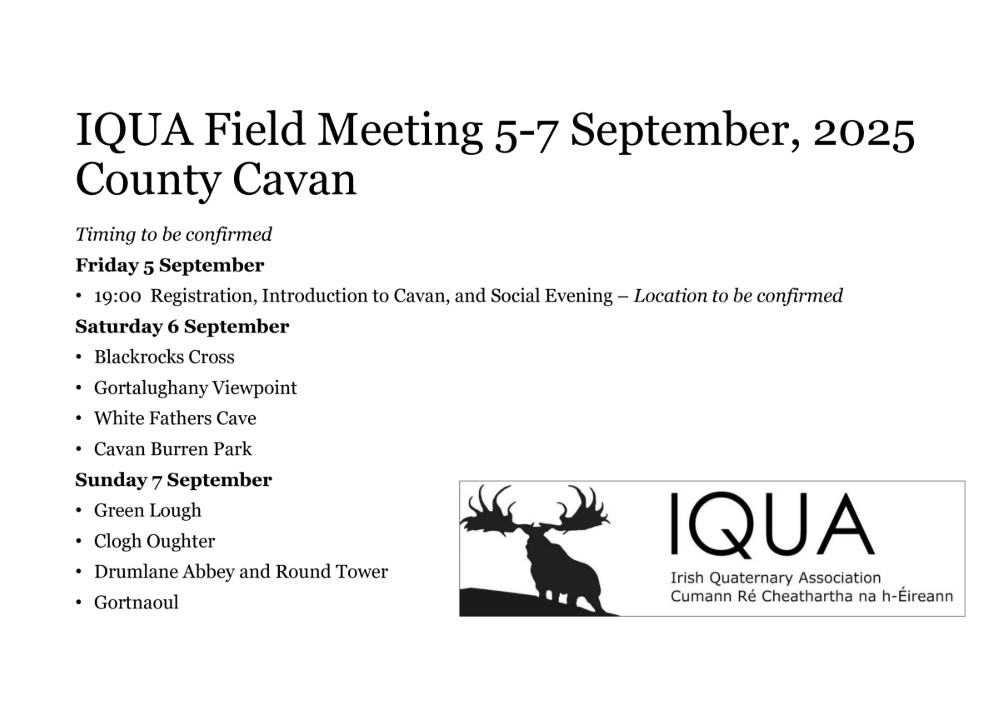
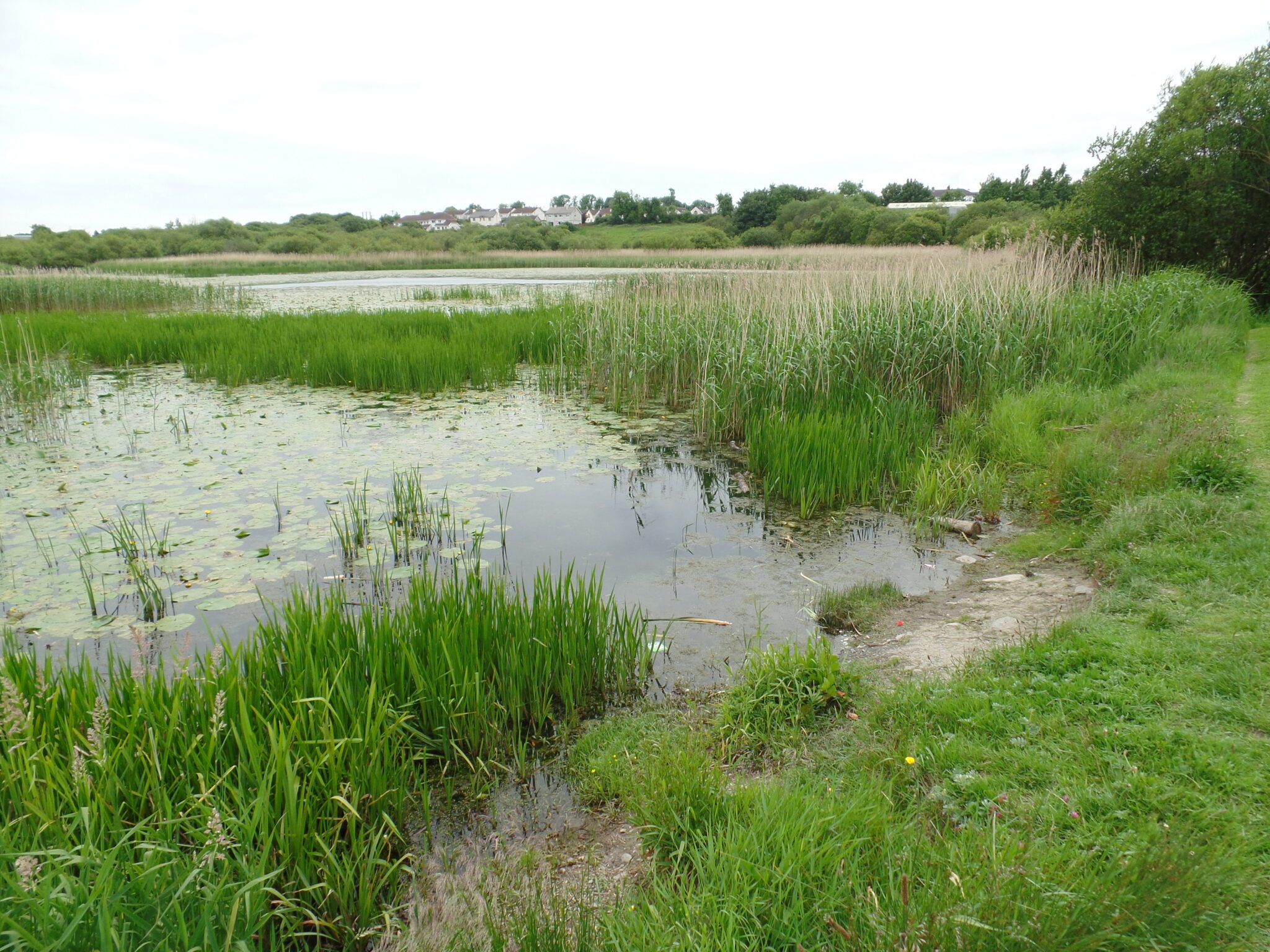



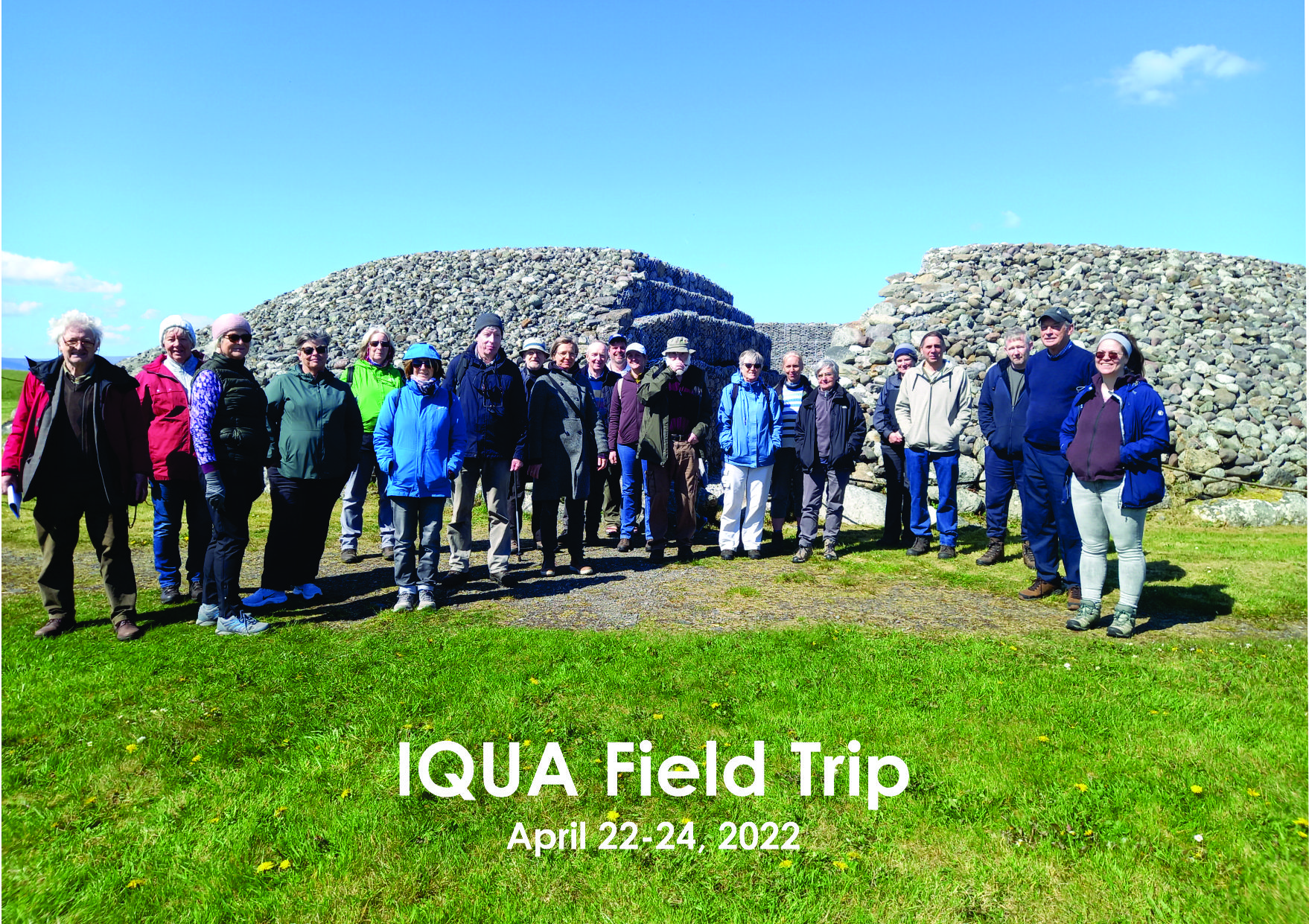
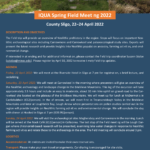
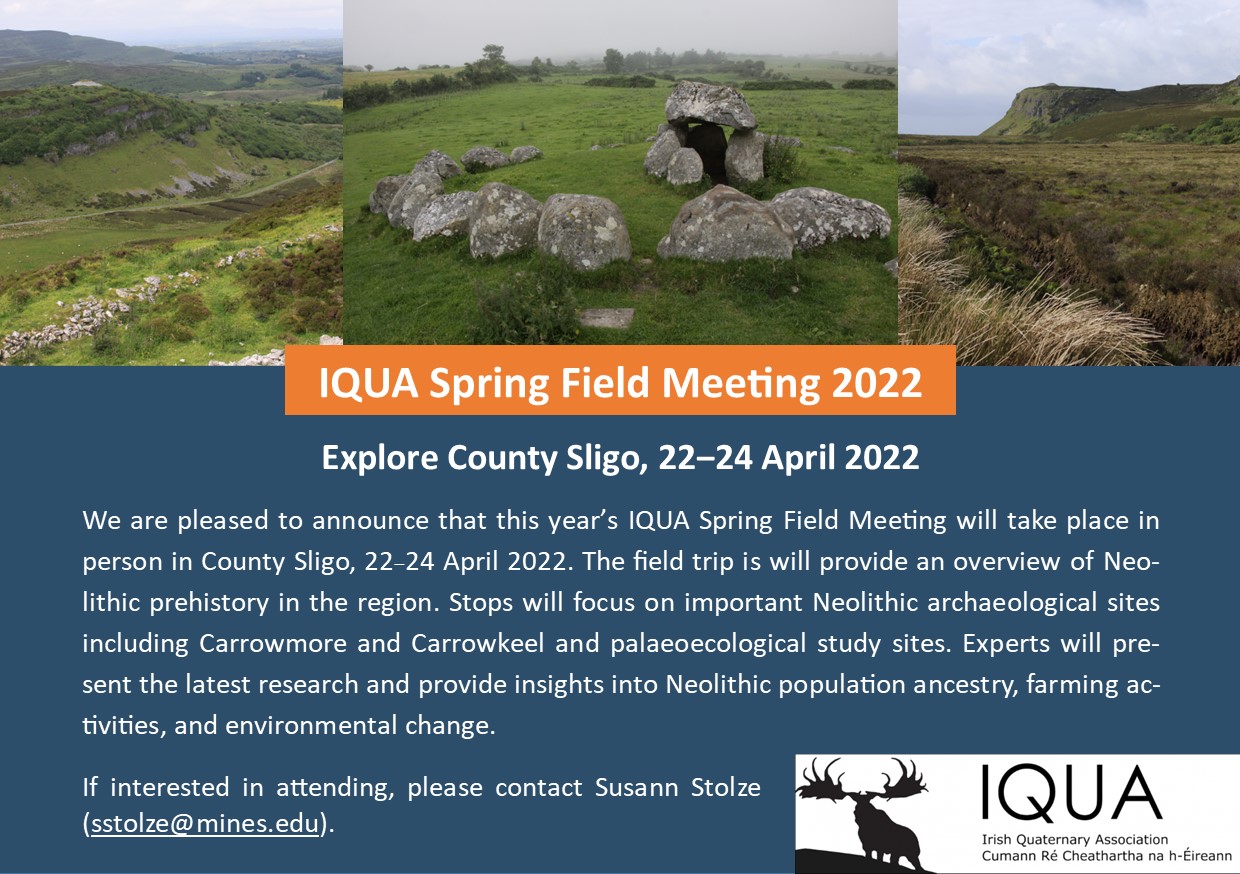

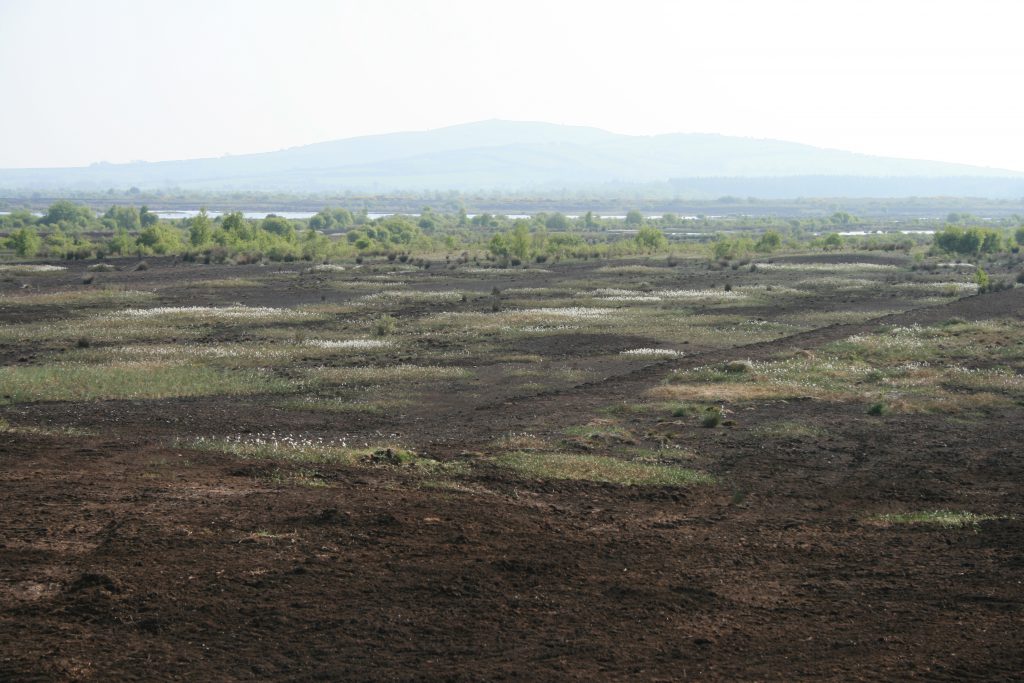 IQUA news – after 21 years we are going back to the Midlands on the weekend 14th to 16th September. Regulation around exploitation has given us a rich source of new palaeoecological and archaeological data. Add to this spectacular glacial geology and the outstanding medieval architectural heritage of north Co Offaly…. and you get about half of what’s happening on this trip, see draft itinerary below for more.
IQUA news – after 21 years we are going back to the Midlands on the weekend 14th to 16th September. Regulation around exploitation has given us a rich source of new palaeoecological and archaeological data. Add to this spectacular glacial geology and the outstanding medieval architectural heritage of north Co Offaly…. and you get about half of what’s happening on this trip, see draft itinerary below for more.